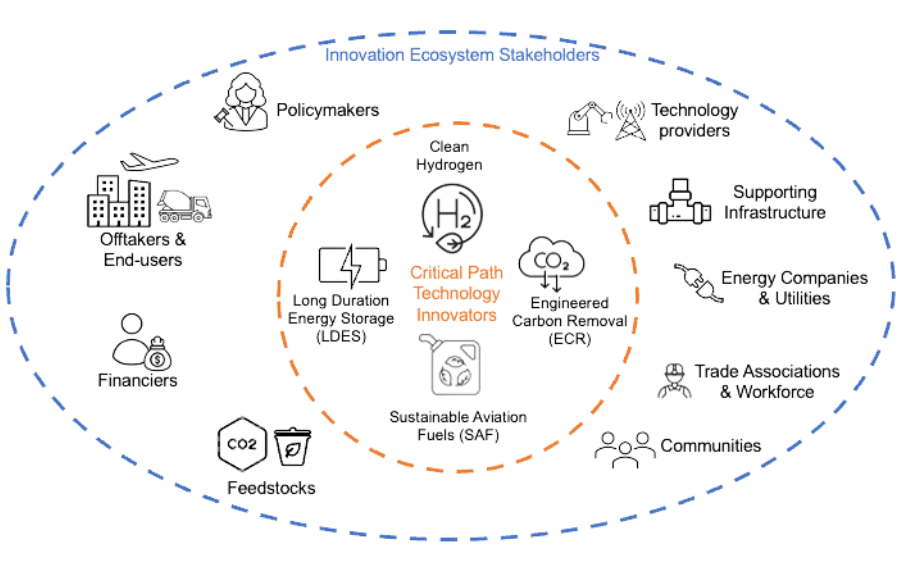Our working groups convene the broad ecosystem, meaning that each working group includes climate tech startups, supporting infrastructure, current/prospective buyers, trade associations, institutional investors and lenders.
C2ES designs working group sessions based on in-house research, stakeholder interviews, and feedback from attendees. Sessions include expert presentations, breakout discussions, and interactive workshops.
Working groups leverage the expertise of members while deepening the knowledge base of all participants. All technology working groups are under the Chatham House Rule, where participants are free to use the information received, but neither the identity nor the affiliation of the speaker(s), nor that of any of the participants may be revealed.
C2ES uses the insights from each working group to produce thought leadership, identify synergies between technologies, and generate policy recommendations that will enable rapid deployment and responsible commercialization of these critical-path technologies.
Key Working Group Priorities:
- Inform policy recommendations: By convening a diverse group of stakeholders that represent the entire value chain, we will develop more effective policy solutions and have a stronger voice advocating for them.
- Gain cutting-edge insights: Reflecting that these technologies are nascent and growing industries, participation in the working group provides an opportunity to learn from other members as technology, policy, and market trends evolve.
- Foster peer connection: The working group offers a venue for conversation and collaboration across each industry, including between stakeholders that may not normally engage with each other.
The Technology Innovation Ecosystem

The innovation ecosystem spans the entire technology value chain. Each working group includes both demand and supply-side perspectives, as well as other key stakeholders.

